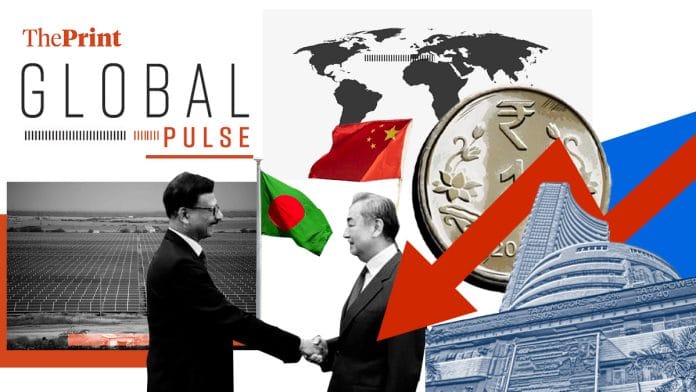New Delhi: A year ago, India’s meteoric rise as an economic power was seen as inevitable. Today, its slowdown has stumped investors, according to The New York Times.
The stock market, which had been soaring for four years, has just erased six months of gains, NYT observes. The rupee is falling faster than ever, and India’s new middle class is wondering where it went wrong. “Mr. Modi will have to adjust his promises,” the report reads.
The reasons for the economic slowdown are up for debate, it concedes. But one effect is “undeniable”—overseas investors have just been heading for the exits. This means they think that the Indian stock market is overvalued. There’s some truth to this: the number of Indians buying stocks have astronomically increased.
“Ahead of the Parliamentary election in June, Mr. Modi’s right-hand man, Amit Shah, predicted that India’s new investor class would help sweep their party to victory. During Mr. Modi’s first two terms, the number of Indians holding investment accounts went from 22 million to 150 million,” NYT reports, before quoting Shah as saying that 130,000,000 people must be earning well to be able to invest.
It’s the luxury high-end sectors that are doing best. “But that prosperity, concentrated among the top 10 percent, left the other 90 percent wanting more,” the report adds.
The Bharatiya Janata Party lost their majority in Parliament, but the Modi government’s expanded welfare schemes helped them retain control, according to NYT. But despite such programmes, “the Modi government has been fiscally conservative and keeps a watchful eye on inflation”, the report says. The priority has been “big-ticket infrastructure items”, meant to encourage the private sector to also invest.
“A year ago, the hope was that India’s own economic engine could push it through the global headwinds. The missing ingredients, then as now, start with too many people having too little money in hand,” NYT reports.
The government’s budget is due on 1 February. There’s plenty of hope that it will include tax cuts, putting more money in the hands of consumers. But the spectre of unemployment and low income hangs over any hope of exiting this slowdown.
The Financial Times reports that land conflicts in India are a major stumbling block for a green energy revolution in the country. The “competing demand for space is leading to bitter disputes between companies and the people who rely on farming to make a living,” the report reads.
India is the third-largest carbon polluter globally, and billions of dollars are going into projects to double the government’s non-fossil fuel sources of power to 500 gigawatts by the end of the decade.
“But this breakneck effort is triggering land disputes across the world’s most populous nation, highlighting the difficulty of building out capacity in fast-growing, crowded and power-hungry developing countries,” FT reports. At least 31 disputes involving green energy projects have affected nearly 44,000 people—a “conservative estimate”.
The clean energy sector in India has come into particular focus after the US indicted Gautam Adani, who has had “projects come up against marginalised communities as have many major power producers”.
The rush of green investment in India has hit a familiar problem, much like the rest of the developing world, the report adds. “Competing demands for land in this densely populated nation of 1.4 billion people have long been cited by businesses as a critical bottleneck to investment. About 60 percent of India’s land is farmed, compared with the 37 percent world average, according to the World Bank, and agriculture is the main means of livelihood for the country’s majority.”
The issue is compounded by the fact that land rights will always be a politically sensitive issue in India. The land market is “notoriously opaque”, with widespread absence of ownership records, complicated government acquisition rules and the presence of middlemen.
“One potential solution mooted by energy experts is the wider deployment of so-called agrivoltaics—the dual use of solar panels typically raised above working farm land. Depending on the angle and space of the equipment, crops can be protected, or exposed to light and heat,” FT suggests.
Meanwhile, Bloomberg reports that Dhaka is cosying up to Beijing, with Bangladesh foreign advisor Touhid Houssain on a state visit to China this week. Renewable energy and solar panels are among the top investments Bangladesh is interested in exploring.
Bangladesh wants to see “more linkages” with China and its historically close ties to India have taken a backseat.
“While Dhaka wants New Delhi to return its exiled former leader Sheikh Hasina, Indian officials and news outlets accuse the interim government of failing to protect Hindus in Muslim-majority Bangladesh. A top Indian diplomat visited Dhaka recently to defuse tensions, but that may not be enough to rebuild trust,” the report says.
Also Read: India’s income tax ‘balancing act’ & plans to pivot the infra push from road to rail







Socialist India can’t implement land, labour, and capital reforms. It will remain a third-world country for ever. All money for socialism and corruption, no money for green energy.